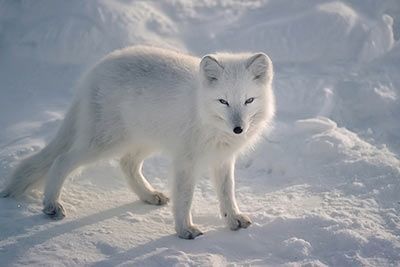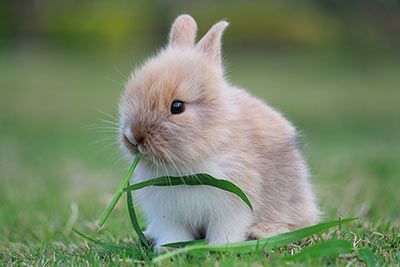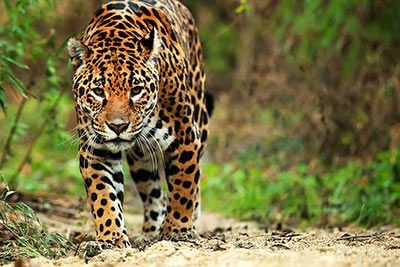Narwhal
Narwhal Facts
| Size | Up to 15.4 ft (4.7 m) |
| Speed | Unknown |
| Weight | Up to 1.6 tons |
| Lifespan | 30-55 years |
| Food | Fish, prawns, jellyfish |
| Predators | Orcas, polar bears, Greenland sharks |
| Habitat | Arctic oceans, pack ice |
| Order | Whales |
| Suborder | Toothed whales |
| Family | Monodontidae |
| Scientific name | Monodon monoceros |
| Characteristics | Toothed whale with a tusk |
Main Characteristics
The narwhal is a small whale known for its long tusk.
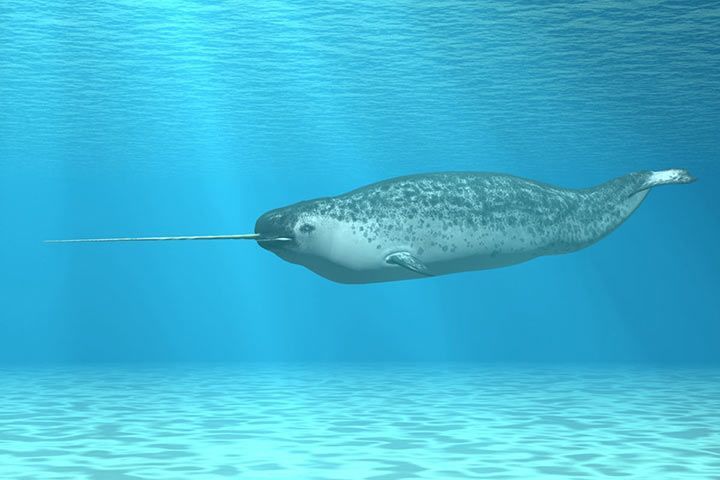
Origin and Evolution
Is The Narwhal Some Kind of Unicorn?
In former times, the tusk of the narwhal was seen as the only evidence for the existence of unicorns. The tusk was highly sought after and so valuable that it was worth its weight in gold.
The narwhal’s tusk is actually a spiral-shaped canine tooth protruding from the upper jaw directly through the upper lip. It can be up to 9.8 feet (3 meters) long and weigh up to 22 lb (10 kg). The narwhal has two of those teeth, but the one on the right often withers away and falls out.
Where Does the Name Narwhal Come From?
Norwegian "Nar" means "corpse". With increasing age, more and more white spots (age marks) appear on the skin of the narwhal – until it resembles a corpse.
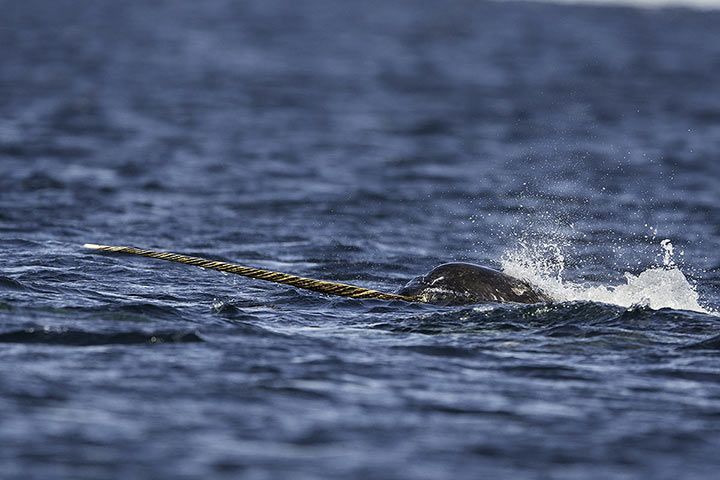
Behavior
What Do Narwhals Eat?
The narwhal hoovers up 99-176 lb (45-80 kg) of fish, prawns and jellyfish every day. When hunting its prey, it dives up to 1,640 feet (500 meters) deep and utters click noises to locate its food.
Does the Narwhal Use its Tusk to Skewer Fish?
Of course one might think the narwhal could use its tooth just like a skewer. But this is not the case. The narwhal sucks its prey into its mouth and swallows it whole.
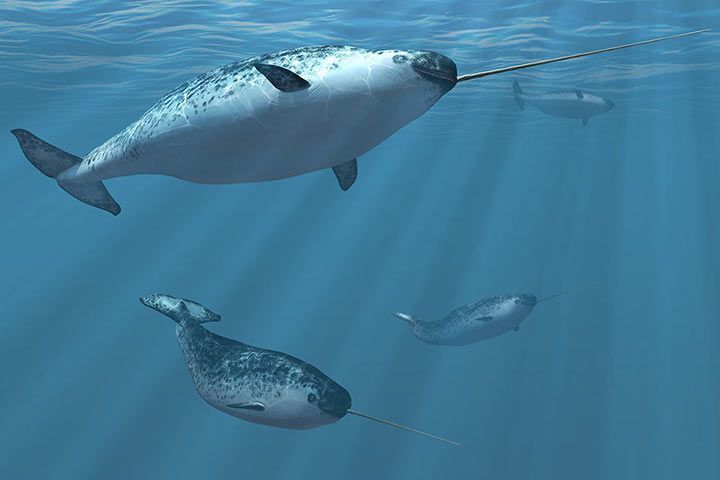
Anatomy and Appearance
What Do Narwhals Use Their Tusks For?
Scientists would like to know this, too. In the past people thought that the narwhal used it to catch its prey or to knock holes into the pack ice. But his tooth could break off and this would be tragic as it does not grow again and the narwhal could catch serious infections and die. Of course this would be rather undesirable for the narwhal.
According to the latest research, the tooth contains about 10 million nerve ends. They possibly enable the narwhal to measure the temperature and pressure of the water, the salinity and the number of prey fish.
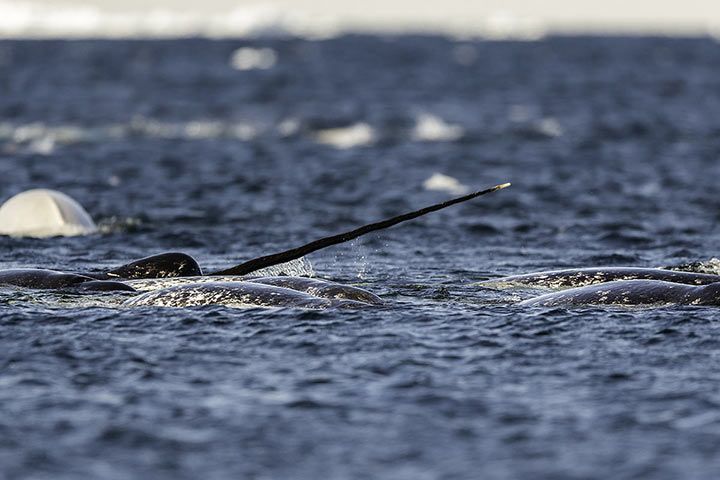
Habitat
Narwhals Prefer Cold Water
During the winter, many animals wander south in order to evade the icy temperatures. Yet, narwhals prefer cold climates and move towards the pack ice during the summer. They use holes in the pack ice to breathe air.
Animals in the Same Biome:
- Atlantic Puffin
- Greenland Shark
- Octopus
- Polar Bear
- Walrus













